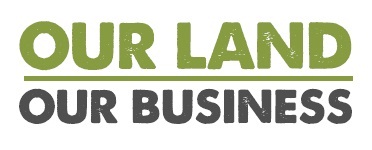By The Oakland Institute. Anuradha Mittal, its Executive Director, is an Honorary member of the ICCA Consortium.
Large-scale land acquisitions by private interests have intensified over the past ten years in the Global South. In most instances, this has involved forced evictions, widespread human rights violations, environmental degradation, the destruction of livelihoods, and increased hunger. These land grabs have taken on an enormous toll on the indigenous, pastoralist, and smallholder farmer communities around the world, from Brazil to the Democratic Republic of Congo to Papua New Guinea. But they have also been met with massive resistance by millions of rural communities who oppose the takeover of their ancestral land. Many have been successful in delaying, disrupting, or stopping the establishment of plantations.
The land people struggle to preserve from the greed of so-called investors is often land they rely upon for their livelihoods, but for which they may not have property titles. Legally, it is typically either public or state land or land on which local communities claim customary rights. This issue is a concern for the World Bank, for which “undocumented [land] rights pose challenges and risks to investors.” This may explain why the Bank, supported by the US and UK governments and the Bill and Melinda Gates Foundation – all strong proponents of the corporatization of agriculture – launched the Enabling the Business of Agriculture (EBA) project in 2013. The goal is to guide pro-business reforms in the agriculture sector by scoring countries on the “ease of doing business.” With this project, the Bank identifies the “legal barriers” for agribusinesses across various areas, such as seeds, fertilizers, trade, and machinery. It then prescribes policy reforms to remove these barriers and support agribusiness. In 2017, the project took a whole new dimension when the Bank launched an aggressive attack on land rights by introducing a land indicator that aimed to privatize the commons in the Global South.
With this new indicator, the Bank prescribed that governments should transfer public lands with “high potential” to private, commercial use so that land can be put to its supposed “best use.” Claiming that low-income countries do not effectively manage public land, the World Bank pushed for the privatization of public land as the way forward by systematizing the sale of public land by auction to the highest bidder. Other measures included formalizing private property rights, easing the sale and lease of land for commercial use, and improving procedures for expropriation. The Bank has ignored that billions of Indigenous and rural poor live and work on these lands, and which are essential to their livelihoods and represent ancestral assets with deep social and cultural significance.
Read the full article at ICCA Consortium

A Major Victory for Land Rights Defenders
By The Oakland Institute. Anuradha Mittal, its Executive Director, is an Honorary member of the ICCA Consortium.
Large-scale land acquisitions by private interests have intensified over the past ten years in the Global South. In most instances, this has involved forced evictions, widespread human rights violations, environmental degradation, the destruction of livelihoods, and increased hunger. These land grabs have taken on an enormous toll on the indigenous, pastoralist, and smallholder farmer communities around the world, from Brazil to the Democratic Republic of Congo to Papua New Guinea. But they have also been met with massive resistance by millions of rural communities who oppose the takeover of their ancestral land. Many have been successful in delaying, disrupting, or stopping the establishment of plantations.
The land people struggle to preserve from the greed of so-called investors is often land they rely upon for their livelihoods, but for which they may not have property titles. Legally, it is typically either public or state land or land on which local communities claim customary rights. This issue is a concern for the World Bank, for which “undocumented [land] rights pose challenges and risks to investors.” This may explain why the Bank, supported by the US and UK governments and the Bill and Melinda Gates Foundation – all strong proponents of the corporatization of agriculture – launched the Enabling the Business of Agriculture (EBA) project in 2013. The goal is to guide pro-business reforms in the agriculture sector by scoring countries on the “ease of doing business.” With this project, the Bank identifies the “legal barriers” for agribusinesses across various areas, such as seeds, fertilizers, trade, and machinery. It then prescribes policy reforms to remove these barriers and support agribusiness. In 2017, the project took a whole new dimension when the Bank launched an aggressive attack on land rights by introducing a land indicator that aimed to privatize the commons in the Global South.
With this new indicator, the Bank prescribed that governments should transfer public lands with “high potential” to private, commercial use so that land can be put to its supposed “best use.” Claiming that low-income countries do not effectively manage public land, the World Bank pushed for the privatization of public land as the way forward by systematizing the sale of public land by auction to the highest bidder. Other measures included formalizing private property rights, easing the sale and lease of land for commercial use, and improving procedures for expropriation. The Bank has ignored that billions of Indigenous and rural poor live and work on these lands, and which are essential to their livelihoods and represent ancestral assets with deep social and cultural significance.
Read the full article at ICCA Consortium